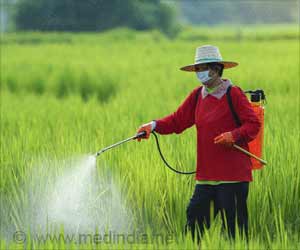Is pesticide dangerous for humans? Yes, too much exposure to pesticide chemicals can put you at a higher risk of developing heart disease and stroke, reveals a new study.
- Spraying pesticides can pose a great threat to human heart health
- Pesticides are commonly used to control various pests and disease carriers, such as ticks, mosquitoes, rats and mice
- Getting overexposed to harmful pesticide chemicals can lead to heart disease and stroke
On-the-job exposure to high levels of pesticides raised the risk of heart disease and stroke in a generally healthy group of Japanese American men in Hawaii, according to new research.
Read More..
Details of the Study
The findings are the latest to emerge from the Kuakini Honolulu Heart Program, which enrolled over 8,000 Japanese American men on Oahu between 1965 and 1968. Men enrolled in the study were 45 to 68 years of age and self-reported their occupation. The group has since undergone multiple examinations and researchers are also tracking all causes of death and some disease outcomes. Data on rates of heart disease and stroke were available through December 1999, for up to 34 years of follow-up.
Findings of the Study
Pesticide exposure was estimated using a scale from the Occupational Safety and Health Administration that assesses the intensity and length of occupational exposure for each job. Compared to men who were not exposed to pesticides at work, in the first 10 years of follow-up, the researchers found:
- Roughly a 45% higher risk of heart disease or stroke in those with high pesticide exposure, (46% after adjusting for age, and 42% after adjusting for other heart disease risk factors as well as age); and
- There was no significant relationship between low to moderate exposure to pesticides and the risk of heart disease or stroke.
Pesticides have a long half-life, so health effects may occur years after exposure. By analyzing different time lags, the researchers found that the maximum effect of exposure on heart disease and stroke risk was during the first 10 years.
The study was conducted only in men of Japanese descent, and the results may not apply to women or other races.
Although the study was conducted solely in first or second-generation Japanese American men, similar results were found in Taiwan for high pesticide exposure in middle age.
Reference:
- Association Between Occupational Exposure to Pesticides and Cardiovascular Disease Incidence: The Kuakini Honolulu Heart Program - (https://www.ahajournals.org/doi/10.1161/JAHA.119.012569)
Source-Eurekalert














